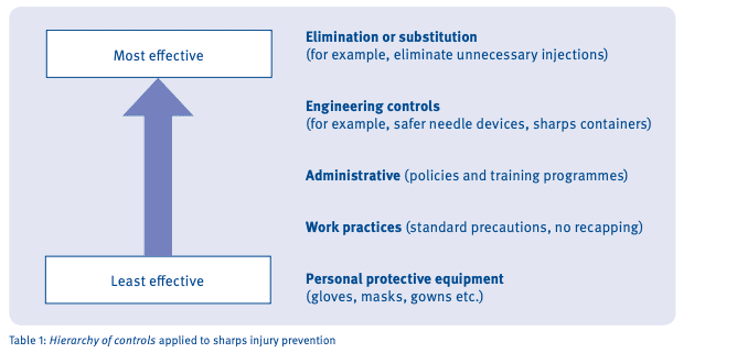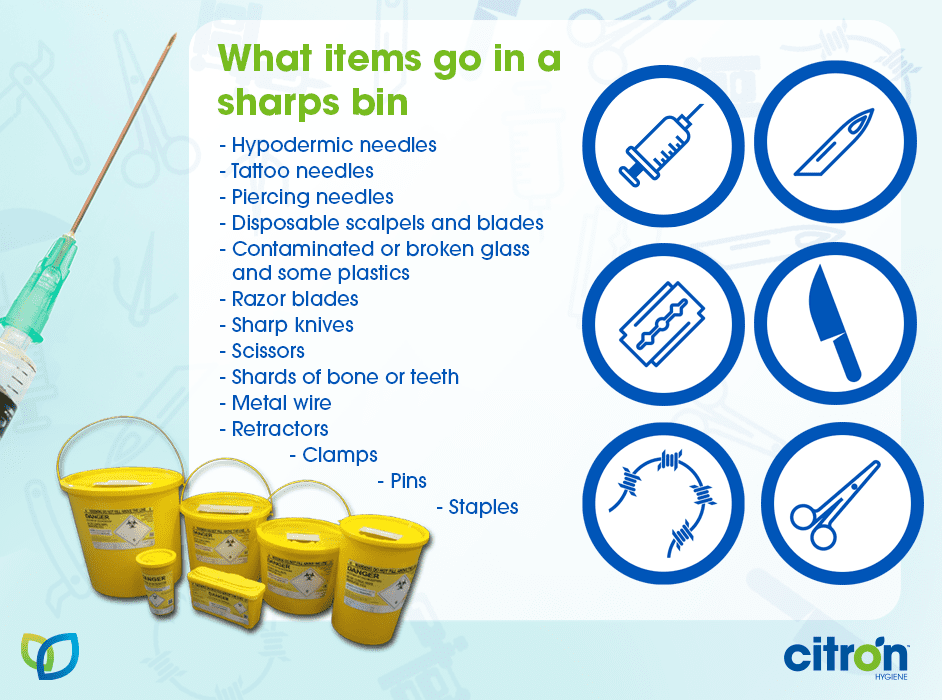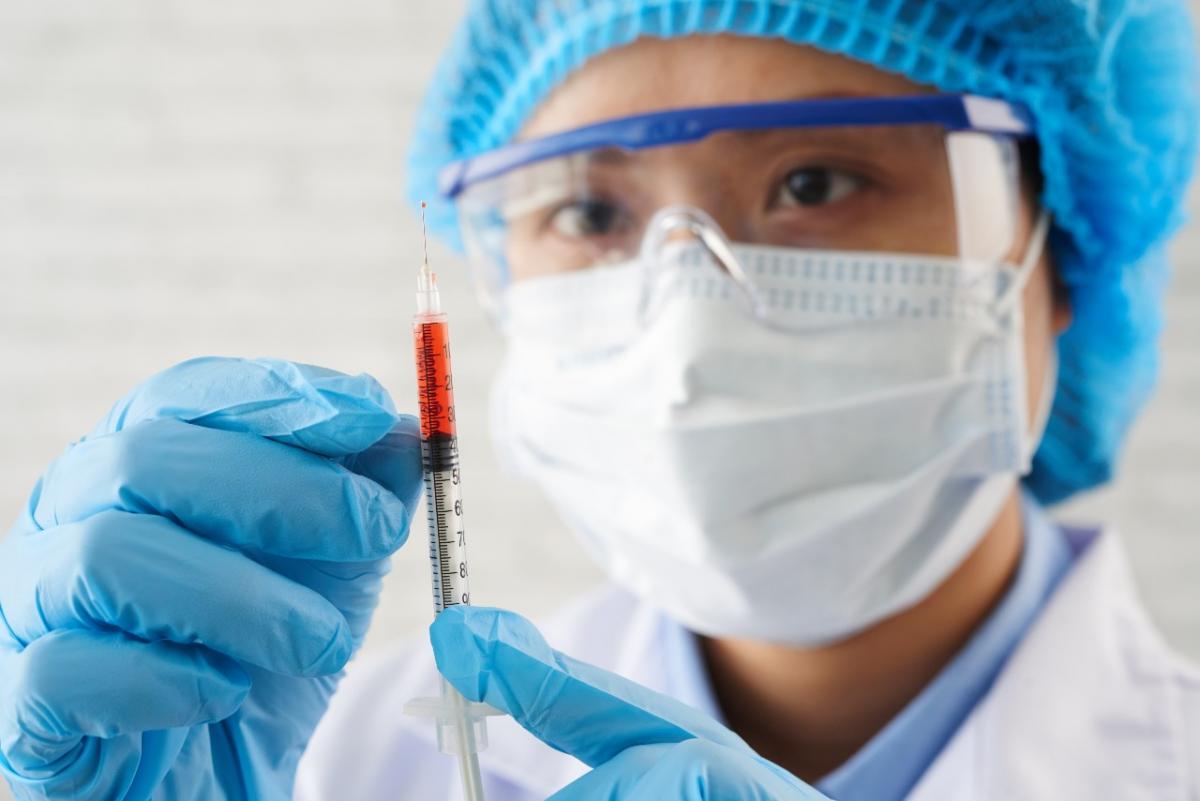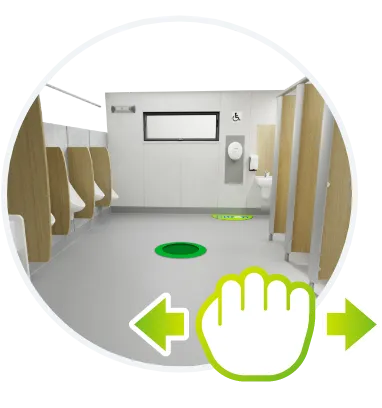Table of Contents
What are Sharps?
‘Sharps’ is a medical term for any device with sharp points or edges that can puncture or cut the skin. This includes needles, syringes, scalpels, razor blades, phials, glass and lancets. Sharps may be used at home, at work or on the go travelling to manage medical conditions.
Are Sharps Hazardous or Non-Hazardous?
It’s important to know there are three types of sharps. These can be differentiated by sharps that are:
- Contaminated with cytotoxic and cytostatic medicines
- Contaminated with other medicines
- Uncontaminated and have not been used to administer medicines.
Sharps that have been used in a health care environment where they have been used on a patient that doesn’t have an infectious illness and doesn’t require medication i.e., blood donors, are classified as non-hazardous sharps.
Whereas sharps that have been infected and contaminated with medicine is classified as hazardous waste and should be stored, transported and disposed of in line with the handling of hazardous waste regulations to avoid risk to human health and the environment.
Benefits of safe disposal of Sharps
As an organisation, it is your primary duty of care to keep your employees safe and prevent any injuries or accidents within the workplace. This includes the prevention of sharp injuries. The Health and Safety (Sharp Instruments in Healthcare) Regulations 2013, states that all industries should provide the use of safe sharps disposal units where it is reasonable practice to do so. By providing the appropriate colour-coded sharps bins where necessary, organisations are putting measures in place to prevent the exposure to the risk of a sharps injury or cross contamination.
There are a number of benefits to having safe yellow sharps bins in the workplace. The biggest advantage is to reduce the risk of blood-borne viruses such as HIV, HBV & HCV and other diseases that can be contracted through contaminated sharps i.e., syringes, scalpels or needles. Without proper sharps bins for the immediate disposal of hazardous sharps waste, this could lead to serious risk to the general public or your employees.
What happens if businesses don’t dispose of Sharps correctly?
Sharps can inflict injuries on both the person disposing the waste and the person removing the waste from the original premises. It is because of this risk that it is vital that sharps waste are stored and disposed of separately to prevent scratches, punctures to the skin or other related skin injuries.
As well as the risk of physical injury, sharps waste can carry the risk of infections as they are often used for medical purposes that cause them to be in contact with blood or other bodily fluids. Contact with blood should be taken extremely seriously and treated with the utmost caution, even a small amount of infected fluid from sharps can spread diseases such as HBV, HCV and HIV. Therefore, without proper disposal of sharps waste, there can be a huge risk of injuries, cross-contamination and other complications within organisations.
It is important to be aware that having means for effective sharps waste disposal where deemed essential is a legal obligation enforced by the Health and Safety at Work Act. Failure to comply to these regulations is considered a criminal act and can result in closure to your business along with serious fines and even prosecution.
How can sharps injuries be prevented?
As an organisation, it is your primary duty of care to keep your employees safe and prevent any injuries or accidents within the workplace, this includes the prevention of sharp injuries. Under the Health and Safety (Sharp Instruments in Healthcare) Regulations 2013, the use of safe sharps disposal units where it is reasonably practicable to do so is one of the main requirements of the regulation. By providing the appropriate yellow sharps disposal bins where necessary, organisations are putting measures in place to prevent the exposure to the risk of a sharp injury.



Prevention of exposure is an important principle within the EU Directive and can be best implemented using the Hierarchy of controls. This practice focuses on the most effective measure of removing the hazard first, rather than implementing or relying solely on training and behavioural changes to the workplace. Where sharps bins are provided for the proper disposal of waste, principles of prevention are in place to eliminate unnecessary risk and prevent sharps injuries. Further details of the hierarchy and how they can be applied are as follows.
Find out more about how your business can prevent exposure to sharp injuries by using Citron’s safe Sharps disposal services, or contact us now for more information.
How to dispose of sharps
Yellow sharp bins should be used to correctly dispose of sharps waste and needles as safely as possible. This waste can be extremely dangerous and cause injuries and other complications of not properly handled and disposed of, and therefore is a legal regulation that all public spaces should provide these.
When disposing of sharps waste, the waste should be dropped into the correct yellow sharps disposal bin without touching the outside of the container. In doing so, this prevents any risk of cross-contamination or accidents. Under no circumstances, should any sharp waste being disposed of in the yellow bins, be pressed down to save space, this could not only cause physical injuries but result in cross contamination if they do not wash their hands.
Sharps waste bins will need to be emptied at the point they are three quarters full, instead of the usual disposal procedure to empty a bin when it’s completely full. By safely emptying the sharps bins before they are full, it’ll present a much lowest risk when handling the sharps waste and will prevent the incident of needles and syringes sticking out of the bin and harming the user.
What items go in a sharps bin?
According to the Health and Safety (Sharp Instruments in Healthcare) Regulations 2013, the following items should be disposed properly in a sharps bin:
- Hypodermic needles
- Disposable scalpels and blades
- Lancets
- Syringes
- Tattoo needles
- Piercing needles
- Contaminated broken glass
- Sharp knives or scissors
- Metal wire
- Pins & staples
Download our FREE waste segregation guidance posters to be displayed around your facilities ensuring staff are disposing of waste in the correct manner.



Where should sharps containers be stored?
Due to the contents, all sharps bins must be stored out of reach of patients, the public and any others who may be at risk. It is for this reason that they should not be stored on the floor or above shoulder level as they could be tipped over.
It’s important they are kept at eye level and are easily accessible to meet the purpose of immediate disposable. All sharps bins must be located in a safe, secure position within a clinical area. It’s advised by the NHS to use either a tray, wall or trolley bracket to secure these to a stable surface. In order to lower the risk of injury, a printout of sharps disposal guidelines should always be displayed next to every sharps bin in a clear way.
Sharps bin colours
In line with the UN approved colour coding system, all waste from sharps bins should be segregated into different bins that are identified through different colour lids depending on the type of waste. This was designed for ease of recognition and handling by producers and disposers. All sharps bins are yellow but with a different coloured lids to represent a different category of waste.
Take a look at our Clinical Waste colour coding infographic to learn more about how sharps should be segregated for safe and easy disposal.
Sharps disposal colour code system
Sharps waste if not disposed of correctly can inflict injury or cross contamination and therefore, the color-coding system is in place to make it easy to distinguish which bin is fit for purpose to dispose of the different sharps item. The following graphic is a helpful guide to the colours used in segregation:
Please note this colour coded waste system relates to disposers in England and Wales. For more information surrounding sharps disposal systems, download our clinical waste management guide.
How to dispose of sharps containers
Sharps waste containers should always be disposed of at point they are three quarters full. By safely emptying the sharps bins before they are full, it’ll present a much lowest risk when handling the sharps waste and will prevent the incident of needles and syringes sticking out of the bin and harming the user.
The most common methods to dispose of your sharps containers are through supervised hazardous waste collection sites or by using a licensed waste management company to collect any sharps waste on a regular, reliable service schedule. Using a licensed company ensures your waste will always be collected and disposed of in the correct manner and it’s the safest way to ensure no employees have to drop any waste at collection points themselves.
Need more information on sharps disposal practices? Discover where your clinical waste actually goes.
Which businesses would benefit from sharps bins?
Anybody who produces or uses clinical waste is seen to be a clinical waste producer and therefore should comply with legal regulations under The Environmental Protection Act 1990. The act places a ‘Duty of Care’ on a person who imports, carries, produces, keeps or disposes of sharps or clinical waste, to take all measures applicable to dispose of the sharps waste correctly and prevent sharps injuries. As the need for sharps bins exponentially grows due to the administering of the covid-19 vaccine, there are a range of industries that could benefit from sharps waste bins:
Medical
One of the most common places to find sharps disposal bins is medical institutions such as hospitals, doctors’ surgeries and dentists. Providing sharps disposal bins in these industries is particularly vital as they are extremely likely to be handling sharps waste that is contaminated with hazardous substances, medicine or bodily fluids, if handled improperly this could inflict injury or cross contamination.
Schools
There are plenty of items found within a school that could be identified as sharp objects, these items include scissors, staples, pins and other stationary supplies that could have sharp points. Aside from these, there is another necessary use for a sharps disposal bin within schools and that’s in the first aid room. Medical instruments are commonly found in a first aid room, which is why there should always be access to a sharps disposal bin for handlers of sharps waste to dispose of it immediately.
Cosmetic Industries
It goes without saying that cosmetic salons, tattoo parlours, piercing salons or hairdressers are likely to use sharps to carry out their day-to-day tasks for example tattoos, Botox, and acupuncture. Due to their reliance on sharp instruments, its important cosmetic businesses have sharps waste disposal bins in place to dispose of their waste safely.
Clothing industry
It’s likely that businesses within the clothing industry such as shoemakers, tailors or seamstresses will need to use needles on a regular basis. As needles are consider a sharp item it’s important all these are disposed of correctly using yellow sharps disposal bins.
Food industry
Restaurants and other businesses within the food industry should always provide sharps disposal bins to dispose of waste such as knives, broken crockery and glass should they need to.
Care Homes
Residential care homes or external care provided in people’s own homes are enough industry that rely on proper disposal of sharps waste and therefore would benefit from sharps disposal bins. Healthcare professionals may find themselves using sharps are part of their day-to-day practice, therefore they should have measures in place to safely dispose of sharps.
Veterinary practices
Another common place to find the need for sharps disposal bins is veterinary practices. Due to their reliance on sharp items on a regular basis, it’s particularly important businesses within this industry have access to sharps disposal bins to ensure they can dispose of the hazardous waste properly.
Sharps Disposal in Public Places and Washroom
Providing sharps bins in public places remains a controversial topic for many. Unfortunately, it is no surprise to us that public washrooms have been a common place where recreational drug use occurs, however as a result, this leads to hazardous waste being left in public spaces or being disposed of in genera waste, nappy bins or sanitary bins, which can impose serious health risk to the general public.
While the most logical reason to prevent hazardous waste being left lying around is to install sharps bins within public washrooms and other public places, but many people believe this to be supporting the illegal drug use by providing disposal units for the users. With recreational drug use becoming an increasingly important issues for businesses and communities, the waste generated is now recognised as a major public safety issue.
Over the last few years, organisations and councils in the UK have been taking action in order to protect their communities from injuries or harmful substances. As a result, corporate giant, Starbucks recently announced plans to introduce sharps bins into their stories to protect staff and customers. Do you think sharps disposal units belong in public washrooms?
For more information around the topic of sharps bins in public places, read Citron Hygiene’s piece on whether Sharps disposal units belong in the washroom.
Take a look around…
Use our virtual washroom to see how our solutions will elevate your washroom experience
Regulations on Sharps Disposal
With so many different types of waste and even more waste management procedures these days, it can be hard to keep up with the regulations and best practices involved. However due to the high risk associated with a sharps injury, healthcare establishments have a legal obligation to implement regulations designed to protect them. To keep up to date with the current legislation, we advise going directly to government legislation sources below as well as Sharps Regulations 2013 and Sharps Regulations 2015 for full information:
- The Health and Safety at Work Act 1974
- The Management of Health and Safety Regulations 1999
- The Reporting of Injuries, Diseases, and Dangerous Occurrences Regulations 1995 (RIDDOR)
The regulations surrounding sharps waste management state that all employers are required under existing health and safety law to ensure that risks from sharp injuries are adequately accessed and appropriate control measures i.e., safe sharp bin disposal units are in place to keep employees and visitors safe.
Under the Sharps Regulations 2015, all sharps waste should be disposed of using safe, colour-coded waste bins and where reasonably practicable to do, companies should:
- Keep sharps bins in a safe, secure place out of reach from children.
- All sharps should be disposed of immediately after use using the appropriate handling method.
- Inform and educate all staff of the effective sharps disposal policy and regulations with clear and concise instructions.
- Minimise the use of sharps and only use when necessary to do so.
For full details and requirements that must be taken by healthcare employees and links to other relevant guidance can be found on the HSE’s website.
Further reading on Sharps
The disposal of sharps and how you approach it says a great deal about how seriously your organisation takes the health and safety of your staff and the general public. It is vitally important to ensure that you’re disposing of sharps in a safe manner using a sharps container to eliminate the risks associated with the handling of sharps. For further information, read more from Citron Hygiene on the prevention of sharp injuries and what to do when a sharp injury occurs or how you can keep your employees and staff safe.
Citron Hygiene’s Safe Sharps Bin Disposal Services
Citron Hygiene offer a wide range of sharps bin disposal services that conform with British Health & Safety Standards to keep employees and visitors safe when disposing of Sharps waste. To learn more about how Citron Hygiene can handle your disposal requirements with safe sharps disposal services or contact us for more information.

